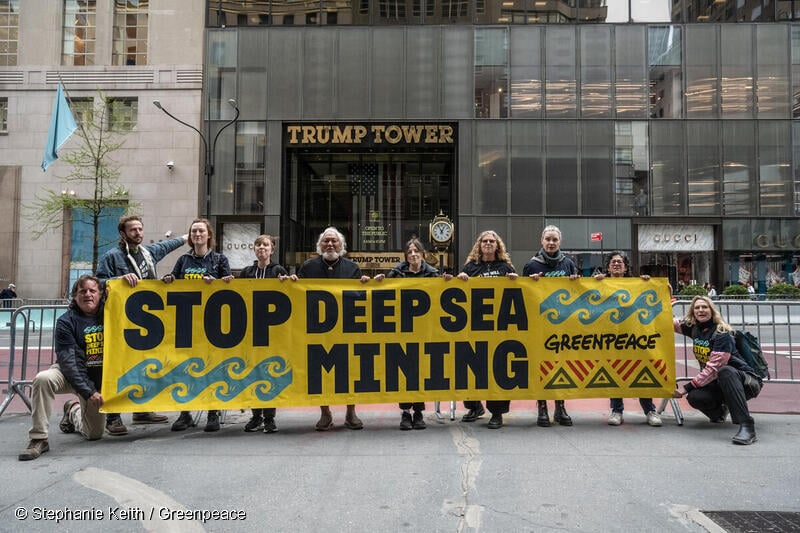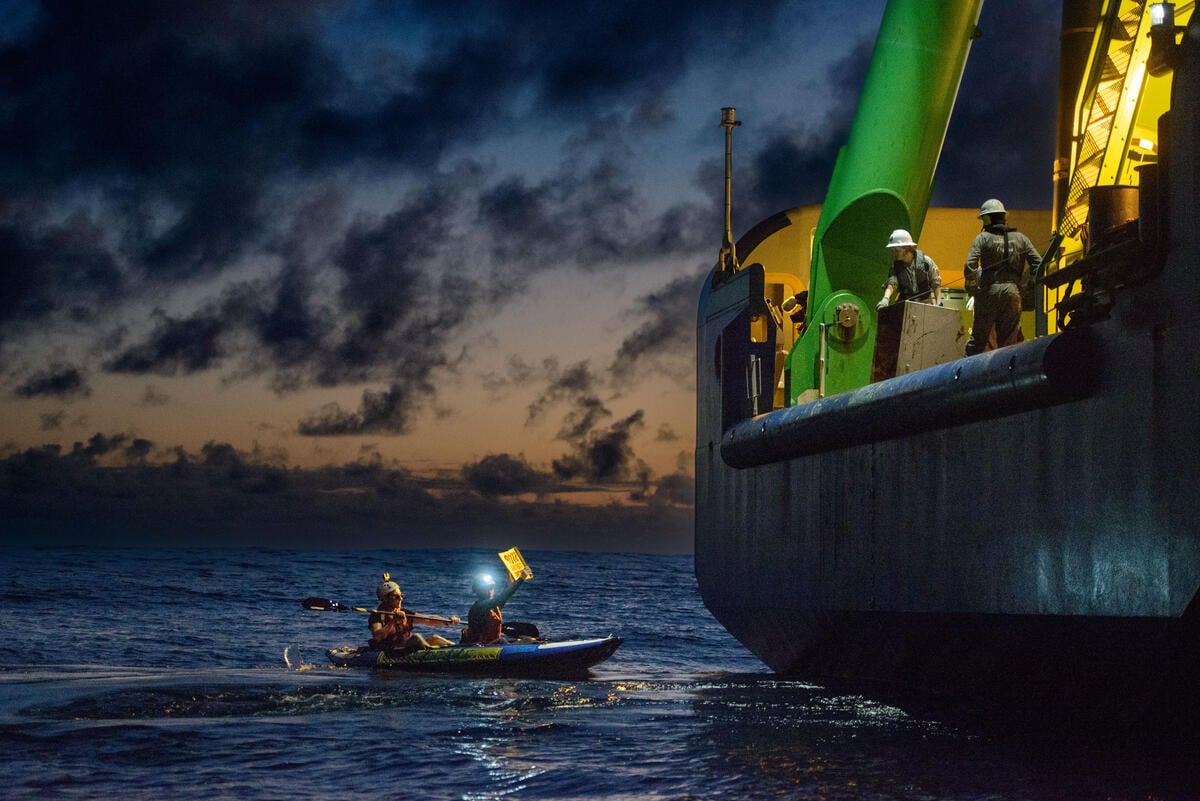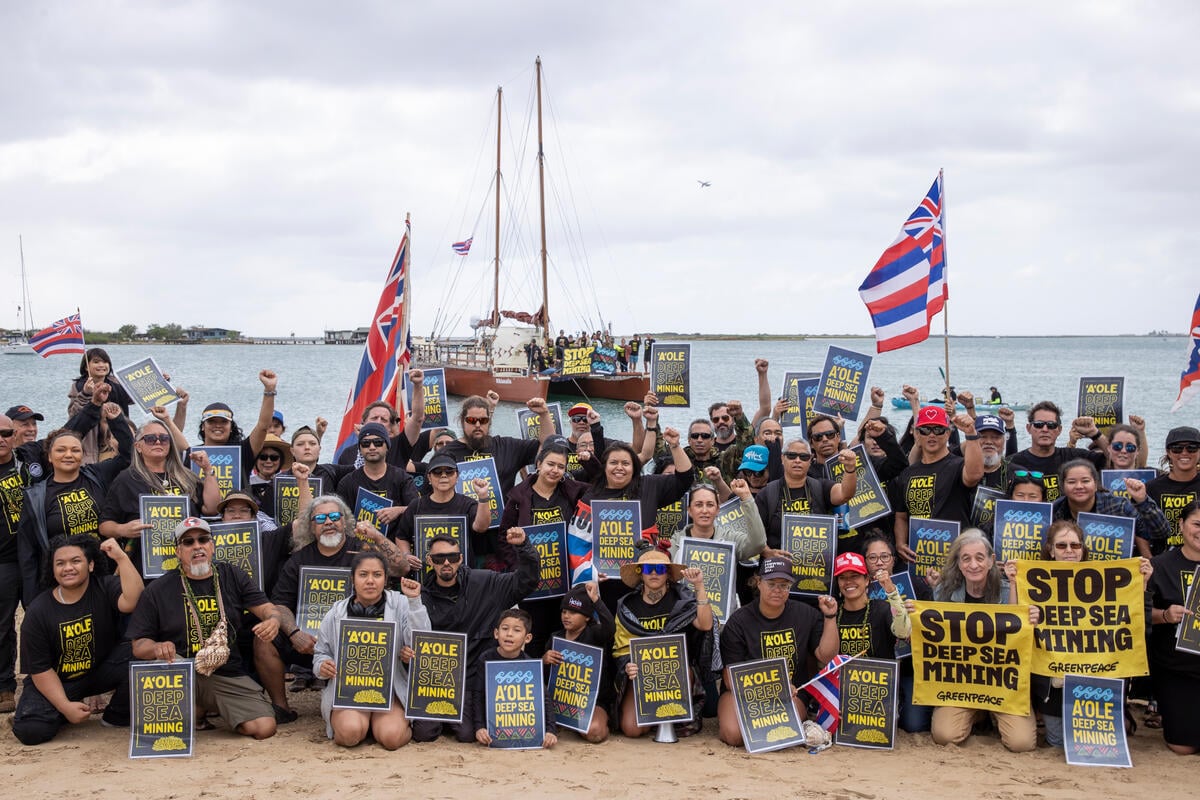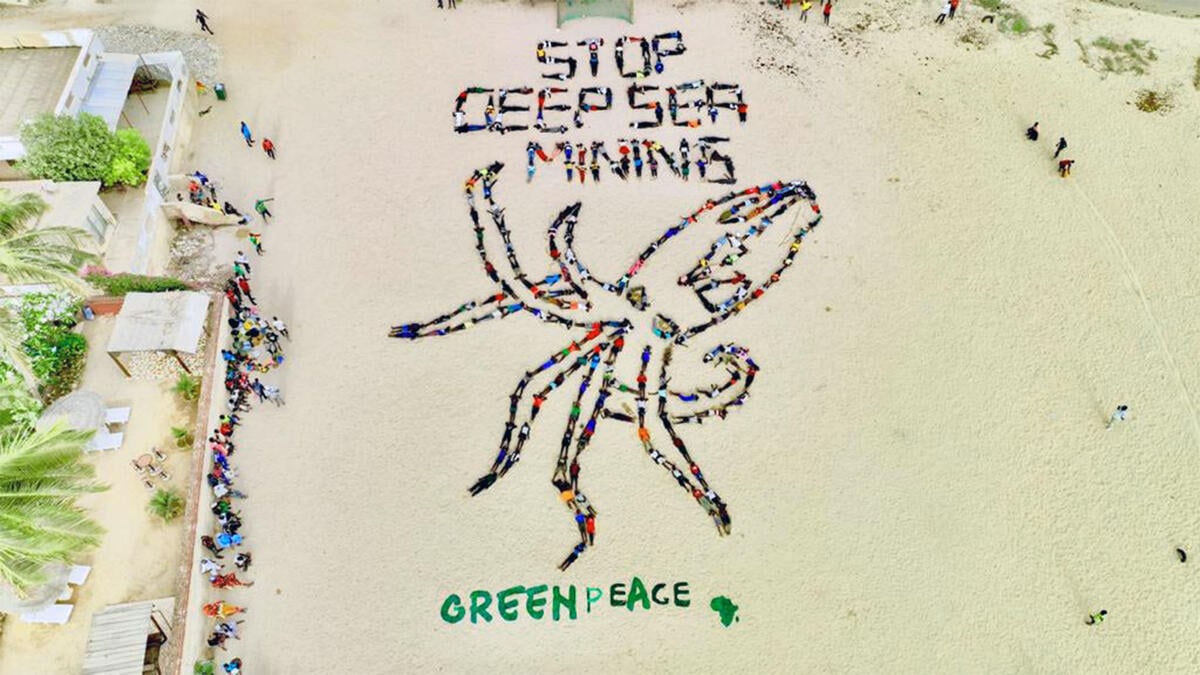“Deep Deception” report refutes claims that deep sea mining is necessary to source critical minerals for U.S. national security and defense.

Washington, D.C. (July 21, 2025) — A new report from Greenpeace USA reveals how the deep sea mining industry has strategically exploited geopolitical tensions to fast-track mass-scale mineral extraction in one of the world’s most crucial and pristine frontiers.
Until very recently, a re-emergent deep sea mining industry justified its existence by promising to provide minerals to support the green energy transition. However, as this justification fell apart under scientific and financial scrutiny, start-ups like The Metals Company (TMC) shifted their rhetoric to focus on national security. Lobbying records show that TMC spent over half a million dollars across two years to lobby Congress and influence the National Defense Authorization Act (NDAA), which sets the levels of funding for the U.S. military. Yet while these companies have asserted that the ocean’s minerals are essential for national security and defense readiness, the report found no evidence that the U.S. defense sector was actively looking to deep sea mining for critical resources.
Arlo Hemphill, Greenpeace USA’s project lead for the Stop Deep Sea Mining campaign, said: “For TMC, the green transition was always a false narrative. The numbers just didn’t add up to justify opening the world’s last unspoiled wilderness to mass-scale extractive exploitation. Now, the industry is repackaging itself as essential to national security and defense, exploiting real geopolitical tensions for personal profit. It’s a dangerous and unnecessary strategy that could destroy the international seabed to enrich a few.”
In April, President Trump, echoing the narrative of The Metals Company (TMC), signed an executive order aimed at accelerating the launch of deep sea mining in both U.S. and international waters. Days later, TMC, which is seeking to secure a contract to mine an area halfway between Hawai`i and Mexico, announced plans to bypass the United Nations’ deep sea regulator, the International Seabed Authority (ISA), by applying for a commercial license under the 1980 U.S. Deep Seabed Hard Mineral Resources Act (DSHMRA).
As the deep sea mining industry attempts to leverage Cold War-era legal loopholes to sidestep international law in pursuit of private gain, the report warns that U.S.-licensed deep sea mining in international waters could undermine decades of multilateral cooperation, ignite global legal conflict, inflame already tense international relations, and inflict irreversible damage on ocean ecosystems.
Major General (U.S. Army, Ret.) Randy Manner, in his foreword to the report, said: “The bedrock of national security is not simply weapons or minerals — it is global stability, rule of law, and ecological resilience. Mining the deep ocean in defiance of international consensus would degrade all three. It would erode U.S. credibility, fracture alliances, and set a dangerous precedent for unilateral resource exploitation.”
The battleground for all of this is the Pacific, a region that has already suffered extensive colonization and militarization at the hands of the global powers. Indigenous leaders, regional civil society organizations, and several Pacific states have called for a ban, moratorium, or precautionary pause on the practice.
Solomon P. Kaho’ohalahala, chair of the Pacific Island Heritage Coalition, said: “The Pacific is not a sacrifice zone. We will not stand by while a neocolonial deep sea land grab takes place that will harm our communities, disrupt our cultural connection to the ocean, and endanger our livelihoods. This July, ISA member States must make it clear where they stand — for their foundational principles of equity, multilateralism, and environmental protection or unbounded corporate greed.”
In March 2025, ISA Member States condemned TMC’s push to bypass the ISA and seek applications through the U.S. Today, ISA Member States wrapped up the first Council meeting since TMC submitted the world’s first-ever application to commercially mine the international seabed. Governments responded by pushing back and launching an investigation that could affect TMC’s subsidiaries, Nauru Ocean Resources Inc. (NORI) and Tonga Offshore Mining Limited (TOML). With this move, the international community shows that deep sea mining companies attempting to bypass international law will face consequences.
Hemphill added: “As the Trump Administration recklessly pushes the false solution of deep sea mining to address national security and defense concerns, the ISA and its Member States must hold the line. The ISA must halt exploitation licenses under its authority, and more Member States must voice or reiterate their support for a global moratorium to protect marine ecosystems, uphold international law, and preserve the legitimacy of multilateral ocean governance.”
Contact: Tanya Brooks, Senior Communications Specialist at Greenpeace USA, [email protected]
Greenpeace USA is part of a global network of independent campaigning organizations that use peaceful protest and creative communication to expose global environmental problems and promote solutions that are essential to a green and peaceful future. Greenpeace USA is committed to transforming the country’s unjust social, environmental, and economic systems from the ground up to address the climate crisis, advance racial justice, and build an economy that puts people first. Learn more at www.greenpeace.org/usa.



